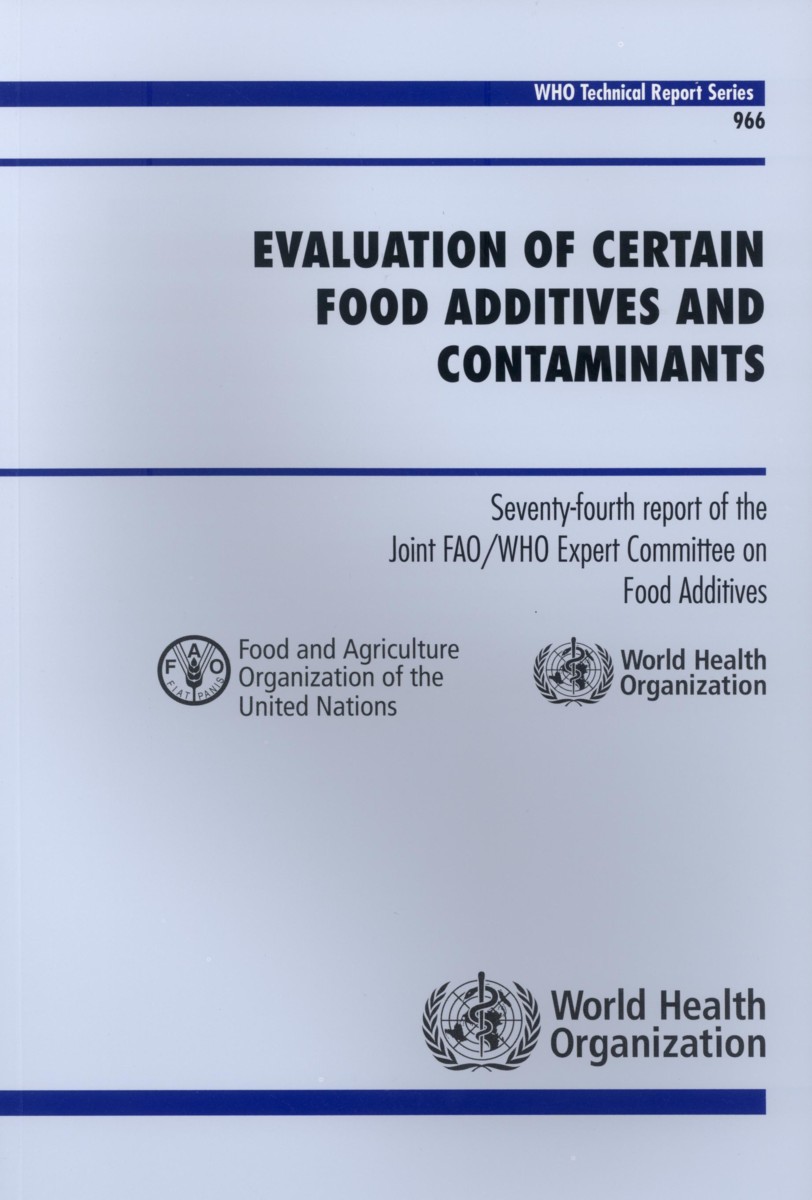Evaluation of Certain Food Additives and Contaminants
Seventy-fourth Report of the Joint FAO/WHO Expert Committee on Food Additives
- Publisher
World Health Organization - Published
28th August 2012 - ISBN 9789241209663
- Language English
- Pages 114 pp.
- Size 6.25" x 9.75"
This report represents the conclusions of a Joint FAO/WHO Expert Committee convened to evaluate the safety of various food additives, with a view to recommending acceptable daily intakes (ADIs) and to preparing specifications for identity and purity. The Committee also evaluated the risk posed by two food contaminants, with the aim of deriving tolerable intakes where appropriate and advising on risk management options for the purpose of public health protection.
The first part of the report contains a general discussion of the principles governing the toxicological evaluation of and assessment of dietary exposure to food additives and contaminants. A summary follows of the Committee's evaluations of technical, toxicological and dietary exposure data for certain food additives (aluminium-containing food additives, Benzoe Tonkinensis, glycerol ester of gum rosin, glycerol ester of tall oil rosin, glycerol ester of wood rosin, octenyl succinic acid modified gum arabic, polydimethyl siloxane, Ponceau 4R, pullulan, pullulanase from Bacillus deramificans expressed in Bacillus licheniformis, Quinoline Yellow and Sunset Yellow FCF) and two food contaminants (cyanogen glycosides and fumonisins).
Specifications for the following food additives were revised: aluminium lakes of colouring matters; B-apo-8'-carotenal; B-apo-8'-carotenoic acid ethyl ester; B-carotene, synthetic; hydroxypropyl methyl cellulose; magnesium silicate, synthetic; modified starches; nitrous oxide; sodium carboxymethyl cellulose; and sucrose monoesters of lauric, palmitic or stearic acid. Annexed to the report are tables summarizing the Committee's recommendations for dietary exposures to and toxicological evaluations of the food additives and contaminants considered.
World Health Organization
World Health Organization is a Specialized Agency of the United Nations, charged to act as the world's directing and coordinating authority on questions of human health. It is responsible for providing leadership on global health matters, shaping the health research agenda, setting norms and standards, articulating evidence-based policy options, providing technical support to countries, and monitoring and assessing health trends.


